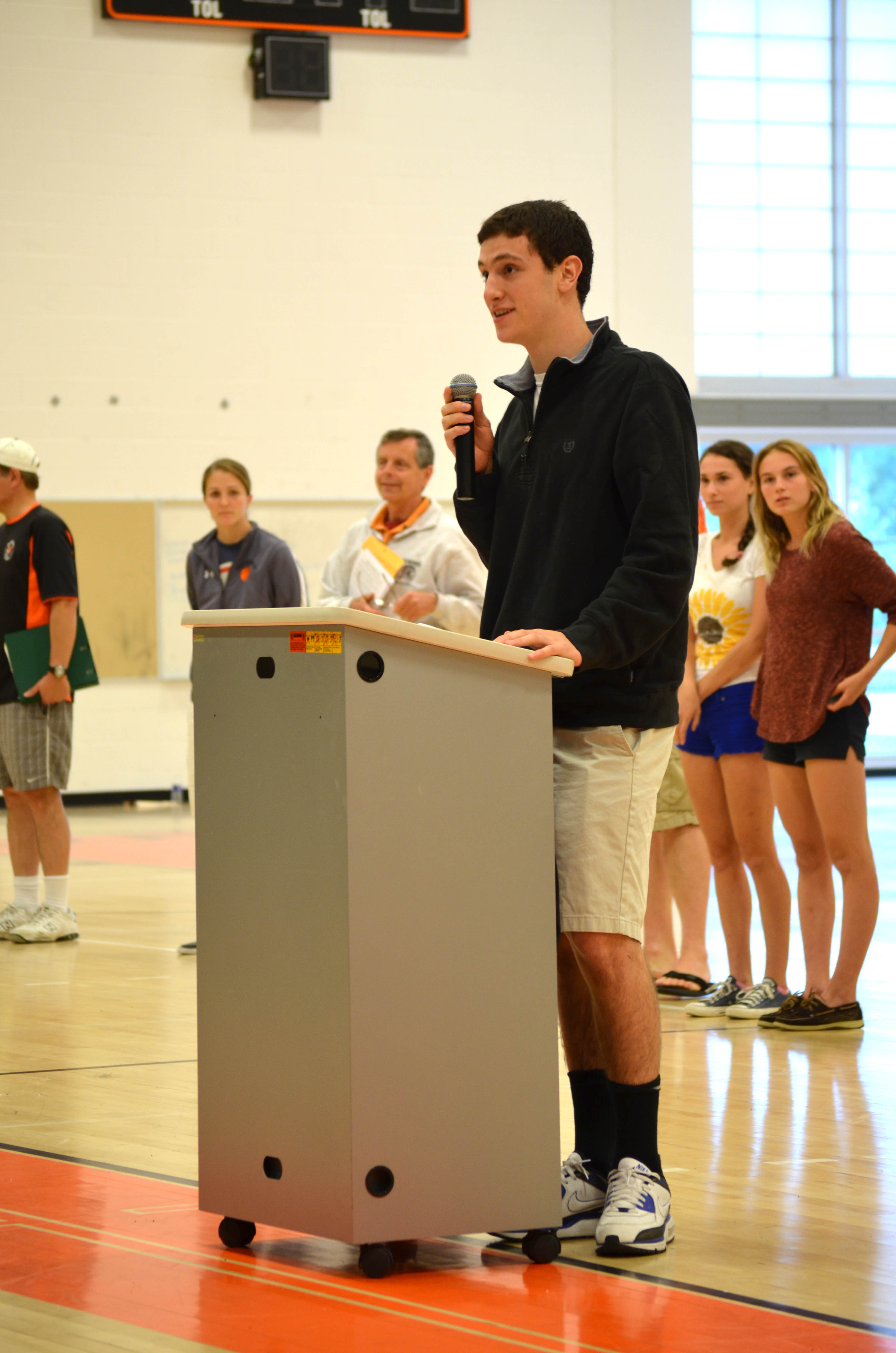
by Alex Feit
Arriving from smaller middle schools into a large, confusing building with such high academic standards can often be a daunting task for the freshmen who enter this school each year.
Not surprisingly, they often feel anxious about their prospects.
“I am most nervous for the big tests and finals,” said freshman Emma Brown, who arrived from Day Middle School.
Freshman Emily Catano said, “I’m most nervous about the switch from Bigelow Middle School to North, because I have heard that high school is so much different than middle school.”
Never fear, said ninth grade liaison Jane Kenslea, who coordinates a support structure to help incoming freshmen transition effectively.
“Thankfully, due to all the support and excellent preparation from the middle and high school guidance counselors, teachers, and administrators, the transition for most students usually goes very smoothly,” said Kenslea.
Moreover, with specialized discussion forums geared towards easing the transition and new programs such as the Ninth Grade Collaborative Teaching Community, the Class of 2017 may find its arrival even more manageable than classes in years past, according to history teacher Gregory Drake, who regularly teaches underclassmen.
Common Challenges
When freshmen begin their high school careers in September, many will come upon new hurdles for which they had not accounted, said Drake.
“I think one of the biggest challenges is adjusting to the academic expectations,” Drake said. “There’s much less structure to homework and there is more difficulty compared to middle school classes.
“While there is much more freedom in this approach, this can also result in organizational problems.”
Drake also said that students over the years have “required more personalized attention over work production,” such as completing homework assignments and studying for tests.
Kenslea commented that she has noticed an increase in the numbers of freshmen experiencing transitional stress in the earlier months of high school.
Adding to these challenges, guidance counselor Michele Kennedy believes that students may have a hard time figuring out how to define their own image in high school, especially in such a large and bustling atmosphere that was not available in previous years.
Nevertheless, the administration is aware of these potential sources for pitfalls, and as a result, the process for bringing underclassmen into this school generally begins in eighth grade, according to Kenslea.
Academic, Social Solutions
During the spring, guidance counselors in the feeder middle schools of Bigelow and F.A. Day register students with their future homerooms and guidance counselors for the next four years.
Concurrently, middle school and high school counselors make preparations for students that might have difficulty with the shift in academic standards and workload.
Meanwhile, programs such as Step-Up Day, Student Orientation Sessions, Freshman Guidance Seminar, and Tiger Tours were created to provide students with a preview of the school building and the years to come, said Kenslea.
When students finally arrive at North, those who need support from teachers and the administration will find that there is plenty to go around, Kenslea added.
For each student, approximately 12 to 15 adult staff members, including the grade’s housemaster, administrative assistants, guidance counselors, teachers, coaches, and Kenslea, all help to provide assistance to freshmen on an as needed basis.
Academic support is individualized for those students who might require it with an Individualized Education Plan (IEP), Kenslea said.
Additionally, a new program called the Ninth Grade Collaborative Teaching Community, spearheaded by Drake, also intends to provide a more individualized and efficient approach to student learning.
A group of eight teachers across several disciplines will meet during G-block regarding shared students in Curriculum II classes.
They will discuss academic difficulties among students and find ways to alleviate them, whether through focused tutoring or by developing studying and organizational strategies, Drake said.
“The plan is to have a cohesive group of students and teachers to sufficiently support students in their academic goals and intervene when appropriate,” Drake said.
Students may also sign up for the After School Program, which provides personalized assistance for completing coursework.
In addition, the Peer Tutoring Program matches students that need help in certain academic subjects with other students who can provide it.
X-blocks on Mondays and Thursdays after the regular school day are also offered as an opportunity for students to meet with teachers for extra help.
On the more informal side, including Tiger Tips, freshman transition groups and guidance aides in freshman homerooms provide new students the opportunity to meet with a peer group to discuss day-to-day issues, Kenslea said.
Kenslea believes that the long term goals of these programs will ultimately be successful in creating a close-knit class with support for all who need it.
“What we are looking toward with all of these programs is a ninth grade community with peer support and an umbrella of close teacher and student collaboration,” Kenslea said.
Yet, in the day-to-day events in which administrators cannot normally intervene, Kennedy recommends that students learn to navigate this school with maturity and a different attitude than they have maintained in the past.
“Ultimately, students should try to leave their middle school selves behind.”
Student Thoughts and Recommendations
For the most part, many students say they find the transition to high school to be manageable and exciting, especially with such an expansive safety net provided for them if high school life becomes difficult.
“I think the transition process is very strong how it is,” said sophomore Rebecca Wishnie. “The guidance counselors, as well as other people at North, are very helpful, and there are lots of programs available when people need them.”
“For me, the transition wasn’t bad at all, but it was nice to know that there were lots of people there to help if I needed support,” Wishnie added.
“My transition into North was very smooth,” said sophomore David Reiss-Mello. “Although going into this enormous building and coming across many new people was very worrisome,” he added.
“I was not sure if I would be able to get good grades in school and participate in many extracurricular activities. Everything worked out,” he said.
“The workload in high school the first year isn’t too harsh either. Teachers understand that many kids have a social life and other activities,” Reiss-Mello said.
With her 18 years of experience in Newton, Kennedy believes that students usually find their way in this school and discover a niche relatively quickly.
“We could always do better,” Kennedy said. “Yet, like a lot of things, what we have done for freshmen works for a large amount of students.”
Categories:
Teachers, students reflect on freshman transition
September 3, 2013
0
Donate to The Newtonite
More to Discover








































